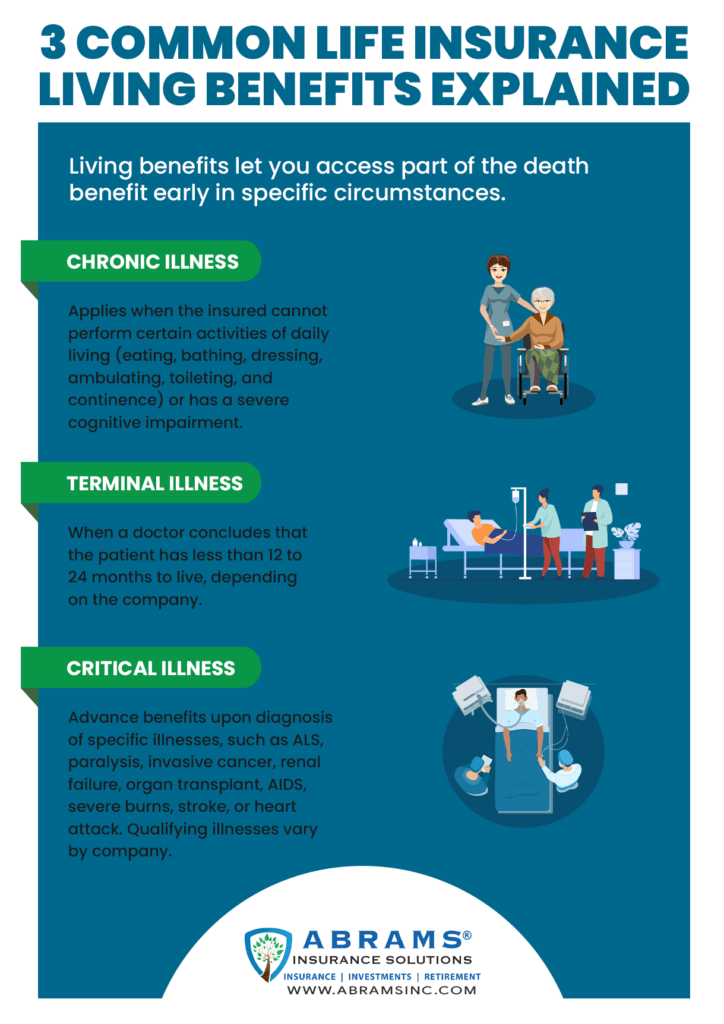Massachusetts Car Accident Law Overview
Are you a victim of a Massachusetts car accident? Do you know your rights? Massachusetts car accident law could be complex, but it’s imperative to understand your rights to protect your interests. This article will delve into the nuances of Massachusetts car accident law, providing you with a comprehensive understanding of the legal landscape you’re navigating.
Who Is at Fault in a Massachusetts Car Accident?
Massachusetts follows a modified comparative negligence rule. This means that both drivers can be found at fault for an accident, and their level of fault will affect their ability to recover damages. If a driver is found to be more than 50% at fault, they are barred from recovering any damages. If they are found to be less than 50% at fault, their damages will be reduced by their percentage of fault.
Determining fault in a car accident can be a complex task. The police report will often assign fault to one or both drivers, but this is not always binding on the insurance companies or the courts.
If you are involved in a car accident, it is important to contact a Massachusetts car accident lawyer to discuss your rights and options. An experienced lawyer can help you investigate the accident, determine who is at fault, and file a claim for damages.
Here are some factors that can be considered when determining fault in a car accident:
- The police report
- Witness statements
- Physical evidence, such as skid marks and damage to vehicles
- Traffic laws and regulations
Insurance companies will often use a variety of tactics to try to reduce or deny your claim. It is important to be aware of these tactics and to have an experienced lawyer on your side to protect your rights.
Massachusetts Car Accident Law: Protecting Your Rights After a Wreck
Navigating the legal labyrinth after a car accident can be daunting, but understanding Massachusetts’s unique car accident laws can empower you to protect your rights. Our guide delves into the intricacies of filing a claim, seeking compensation, and more.
Filing a Car Accident Claim
In the aftermath of an accident, time is of the essence. Massachusetts law grants injured parties three years to file a claim with the at-fault driver’s insurance company. This time limit applies to both physical and property damage claims. Delaying your claim could jeopardize your ability to recover damages.
To initiate your claim, contact the at-fault driver’s insurance company and provide essential information, including your name, contact details, and a brief description of the accident. The insurance company will assign an adjuster to investigate your claim and determine whether to accept or deny it.
If your claim is denied or if you disagree with the settlement offer, you have the option to file a lawsuit in court. However, this can be a lengthy and costly process, so it’s advisable to explore all other options before resorting to litigation.
Navigating the Legal Maze of Massachusetts Car Accidents
If you’ve had the misfortune of being involved in a car accident in Massachusetts, understanding the legal landscape is essential for protecting your rights. Massachusetts operates under a fault-based insurance system, where the driver deemed responsible for the crash bears the financial burden.
Determining Fault in a Crash
In a fault-based system, fault is often a matter of debate. Typically, the driver who caused the accident is held liable, but determining causation can be tricky. Factors like traffic violations, reckless driving, and even distracted driving can all play a role in assigning fault.
Liability and Insurance Coverage
Once fault is established, the responsible driver’s insurance company steps in to cover the costs. Massachusetts requires all drivers to carry minimum liability insurance, including property damage and bodily injury coverage. The coverage limits vary depending on the severity of the damages.
Navigating the Claims Process
Filing an insurance claim after a car accident can be a daunting process. Gather as much evidence as possible, such as photos, witness statements, and police reports. Keep track of all communication with the insurance company and any expenses you incur as a result of the accident.
Seeking Legal Assistance
If you’re unsure about your rights or the insurance claim process, consider seeking legal guidance. An experienced attorney can help you navigate the complexities of the law, negotiate with insurance companies, and ensure that you receive fair compensation for your injuries and damages.
Remember, knowledge is power, and understanding the legal framework surrounding car accidents in Massachusetts can empower you to protect your interests. By following these guidelines and consulting with professionals when needed, you can navigate the legal maze with confidence.
Massachusetts Car Accident Law: Navigating the Legal Landscape
If you’re unfortunate enough to find yourself involved in a car accident in Massachusetts, understanding the legal landscape is crucial. Here’s a comprehensive guide to help you navigate this treacherous terrain.
Personal Injury Protection (PIP)
All drivers in Massachusetts are required to have PIP coverage, which provides compensation for medical expenses and lost wages sustained in car accidents. This coverage is crucial as it ensures that you can get the medical attention you need without worrying about the financial burden. PIP also covers up to 75% of lost wages for up to two years.
However, there are some limitations to PIP. It doesn’t cover pain and suffering, disfigurement, or other non-economic losses. Moreover, if your injuries exceed the PIP limits, you may need to pursue additional legal action to recover the full extent of your damages.
Fault and Negligence
In Massachusetts, car accidents are typically handled under a fault-based system. This means that the person who caused the accident is responsible for paying damages to the injured party. To establish fault, you must prove that the other driver was negligent, meaning they failed to exercise reasonable care while driving.
Negligence can be proven by showing that the other driver was speeding, distracted, intoxicated, or otherwise breached their duty of care to other road users. If you can successfully prove fault, you can seek compensation for your medical expenses, lost wages, pain and suffering, and other damages.
Statute of Limitations
When it comes to car accident lawsuits, time is of the essence. Massachusetts has a statute of limitations that sets a deadline for filing a lawsuit. Generally, you have three years from the date of the accident to file a claim. If you fail to file within this timeframe, you lose the right to seek compensation for your injuries.
It’s important to consult an experienced car accident attorney as soon as possible after the accident to ensure that your rights are protected. An attorney can help you gather evidence, file your claim, and negotiate a fair settlement.
Comparative Negligence
Massachusetts follows a comparative negligence rule, which means that even if you’re partially at fault for the accident, you can still recover compensation. However, your damages will be reduced in proportion to your degree of fault. For example, if you are found to be 20% at fault, your damages will be reduced by 20%.
Comparative negligence is a complex area of law. It’s wise to seek legal advice to understand your rights and ensure that you receive fair compensation for your injuries.
Massachusetts Car Accident Law: A Comprehensive Guide
If you’ve been involved in a car accident in Massachusetts, understanding the state’s laws is essential. These laws protect your rights and ensure fair compensation for victims. Here’s a comprehensive guide to Massachusetts car accident law.
Statute of Limitations
The statute of limitations for filing a car accident lawsuit is three years from the date of the accident. This means you must file your lawsuit within three years of the crash or you may lose your right to compensation. However, there are exceptions to this rule, such as if you’re a minor or if the defendant left the state.
Comparative Negligence
Massachusetts follows a comparative negligence rule. This means that even if you’re partially at fault for the accident, you can still recover damages. However, your recovery will be reduced by the percentage of fault you’re assigned. For example, if you’re found to be 20% at fault, you can only recover 80% of your damages.
Insurance Requirements
All drivers in Massachusetts are required to carry liability insurance. The minimum coverage amounts are $20,000 for bodily injury per person, $40,000 for bodily injury per accident, and $5,000 for property damage. If you’re injured in an accident with an uninsured driver, you may be able to file a claim with your own insurance company under your uninsured motorist coverage.
Personal Injury Protection (PIP)
Massachusetts drivers are also required to carry personal injury protection (PIP) coverage. PIP coverage provides benefits for medical expenses, lost wages, and other losses regardless of who’s at fault for the accident. The minimum PIP coverage amount is $2,000.
Documentation
To support your car accident claim, it’s important to gather as much documentation as possible. This includes photos of the damage, your medical records, and any witness statements. You should also obtain a copy of the police report. This documentation will help to prove your case and maximize your recovery.
Massachusetts Car Accident Law
Massachusetts car accident law is a complex area of law that can be difficult to navigate without the help of an experienced attorney. If you or someone you know has been injured in a car accident, it is important to contact an attorney as soon as possible to discuss your rights and options.
Determining Fault
One of the most important aspects of a car accident case is determining who was at fault for the accident. In Massachusetts, fault is determined based on the theory of negligence. Negligence is defined as the failure to use reasonable care to avoid harm to others. In order to prove negligence, the injured party must show that the defendant owed them a duty of care, that the defendant breached that duty of care, and that the defendant’s breach of duty caused the accident and their injuries.
Damages
Injured parties in a car accident case may be entitled to recover damages for their injuries. Damages can include compensation for medical expenses, lost wages, pain and suffering, and property damage.
No-Fault Benefits
Massachusetts has a no-fault insurance system for car accidents. This means that each driver’s own insurance company is responsible for paying for their medical expenses and lost wages, regardless of who was at fault for the accident. No-fault benefits are available to all drivers, regardless of whether they have health insurance.
Bodily Injury Claims
If the injuries sustained in a car accident are serious, the injured party may be able to file a bodily injury claim against the at-fault driver. Bodily injury claims can include compensation for pain and suffering, lost wages, and future medical expenses.
Property Damage Claims
In addition to bodily injury claims, injured parties may also be able to file a property damage claim against the at-fault driver. Property damage claims can include compensation for damage to the injured party’s vehicle and other property.
Contact an Attorney
If you have been injured in a car accident, it is important to contact an experienced attorney to discuss your rights and options. An attorney can help you navigate the complex legal process and maximize your recovery.
Navigating the legal complexities of car accidents in Massachusetts can be a daunting task. However, understanding the state’s unique laws and regulations can empower you to protect your rights and navigate the aftermath of an accident effectively.
In Massachusetts, unlike most other states, drivers do not have the luxury of a no-fault insurance system. This means that in the event of an accident, the onus falls heavily upon you to prove the other driver’s negligence.
Proving Fault
Establishing fault in a car accident is paramount in Massachusetts. To prevail in your claim, you must demonstrate that the other driver breached their duty of care and that this breach directly caused your injuries or damages. Key elements to consider include:
- Breach of duty: Determine whether the other driver violated traffic laws or failed to exercise reasonable care while operating their vehicle.
- Causation: Prove that the driver’s negligence directly led to the accident and your subsequent injuries.
- Damages: Quantify your losses, including medical expenses, lost wages, property damage, and pain and suffering.
Statute of Limitations
Time is of the essence when pursuing a car accident claim in Massachusetts. The statute of limitations, which sets a deadline for filing a lawsuit, is typically three years from the date of the accident. Failure to file within this timeframe may result in your claim being barred.
Insurance Coverage
Massachusetts law requires all drivers to carry a minimum amount of liability insurance, which covers bodily injury and property damage caused to others. However, it’s advisable to consider purchasing additional coverage, such as uninsured/underinsured motorist insurance, to protect yourself from drivers without adequate insurance.
Comparative Negligence
Massachusetts follows a comparative negligence rule. This means that even if you are partially at fault for the accident, you may still be entitled to compensation. However, your recovery will be reduced in proportion to your degree of fault.
Hiring an Attorney
Navigating the complexities of Massachusetts car accident law can be challenging. If you have been involved in an accident, it is highly recommended to consult with an experienced attorney who can guide you through the process, protect your rights, and maximize your recovery.
Massachusetts Car Accident Law
Were you or a loved one recently injured in a car accident? If so, you are likely wondering what your legal rights are. The laws governing car accidents can be complex, and vary from state to state. In Massachusetts, the following laws apply to car accidents:
Comparative Negligence
Massachusetts uses a comparative negligence rule, which reduces the amount of compensation awarded to partially at-fault victims. This means that even if you are found to be partially at fault for the accident, you may still be able to recover damages from the other driver. The amount of compensation you receive will be reduced by your percentage of fault.
For example, if you are found to be 20% at fault for an accident, you will only be able to recover 80% of your damages from the other driver. This rule is designed to ensure that both drivers are held accountable for their actions, and that victims are not unfairly penalized for their own negligence.
Fault Threshold
In addition to the comparative negligence rule, Massachusetts also has a fault threshold. This means that you must meet a certain threshold of injury in order to recover damages from the other driver. The fault threshold is 15% of your body, which means that you must have suffered injuries that are at least 15% permanent to recover damages.
This threshold is designed to prevent frivolous lawsuits from being filed, and to ensure that only those who have suffered significant injuries are able to recover compensation.
Statute of Limitations
The statute of limitations for filing a car accident lawsuit in Massachusetts is 3 years from the date of the accident. This means that you must file your lawsuit within 3 years of the accident, or you will lose your right to recover damages.
There are some exceptions to this rule, such as if you were under the age of 18 at the time of the accident, or if you were mentally incompetent. However, it is important to speak to an attorney as soon as possible after an accident to ensure that your rights are protected.
Massachusetts Car Accident Law
If you or someone you know has been involved in a car accident in Massachusetts, it is vital to be aware of the legal rights and responsibilities that come with such an event. The Massachusetts car accident law is complex and ever-evolving, so it’s crucial to stay informed. This article will provide you with a general overview of the law, including information on attorney representation, insurance coverage, fault determination, and more.
Attorney Representation
After a car accident, one of the most important decisions you can make is whether or not to hire an attorney. An experienced attorney can help you protect your legal rights, navigate the insurance process, and maximize your compensation. If you have been seriously injured or if the other driver is disputing fault, it is highly advisable to seek legal counsel.
Insurance Coverage
Massachusetts has a no-fault insurance system, which means that regardless of who is at fault for the accident, each driver’s own insurance company will typically cover their medical expenses and lost wages up to certain limits. However, there are exceptions to this rule. For example, if you are injured by an uninsured driver or if your injuries exceed the limits of your own insurance policy, you may be able to file a claim against the at-fault driver’s insurance company.
Fault Determination
In Massachusetts, fault is determined based on a system of comparative negligence. This means that each driver’s negligence is compared, and the driver who is found to be more at fault will be responsible for a greater percentage of the damages. For example, if you are found to be 20% at fault for an accident, you will only be able to recover 80% of your damages from the other driver.
Damages
If you are injured in a car accident, you may be entitled to compensation for your damages. These damages can include medical expenses, lost wages, pain and suffering, and more. The amount of compensation you are entitled to will depend on the severity of your injuries and the extent of the other driver’s negligence.
Filing a Claim
To file a claim for damages after a car accident, you must first notify your own insurance company. You will then need to provide the insurance company with information about the accident, including the other driver’s insurance information. The insurance company will then investigate the accident and determine whether you are entitled to compensation.
Statute of Limitations
There is a statute of limitations for filing a car accident claim in Massachusetts. This means that you must file your claim within a certain period of time after the accident occurred. The statute of limitations for car accident claims in Massachusetts is three years.
Conclusion
If you have been involved in a car accident in Massachusetts, it is important to be aware of your legal rights. An experienced attorney can help you protect your rights and maximize your compensation. Don’t wait to take action. Contact an attorney today to discuss your case.
Massachusetts Car Accident Law
If you’ve been in a car accident in Massachusetts, it’s important to understand the state’s laws governing these incidents. These laws can have a significant impact on your ability to recover compensation for your injuries and damages. Here’s a comprehensive overview of the key legal considerations you should be aware of:
Insurance Coverage
Massachusetts has a no-fault insurance system, meaning that drivers are required to carry personal injury protection (PIP) insurance to cover their own medical expenses and lost wages, regardless of who is at fault for the accident. However, if your injuries are serious, you may be able to file a claim against the at-fault driver’s insurance policy.
Statute of Limitations
The statute of limitations for filing a personal injury lawsuit in Massachusetts is three years from the date of the accident. If you fail to file your lawsuit within this time frame, you will lose your right to seek compensation.
Fault Determination
In Massachusetts, fault is determined on a comparative negligence basis. This means that each driver’s percentage of fault is assessed, and their compensation is reduced accordingly. For example, if you are found to be 20% at fault for an accident, your compensation will be reduced by 20%.
Other Important Considerations
In addition to the above, there are a number of other important considerations to keep in mind when dealing with a car accident in Massachusetts. These include:
- Medical expenses: You are entitled to receive compensation for all reasonable and necessary medical expenses related to your injuries.
- Lost wages: You may be able to recover compensation for lost wages if you are unable to work due to your injuries.
- Pain and suffering: You may be awarded compensation for the physical and emotional pain and suffering you have endured as a result of the accident.
- Property damage: You may be able to recover compensation for the cost of repairing or replacing your vehicle, as well as for other property damage you have incurred.
- Wrongful death: If a loved one has been killed in a car accident, you may be eligible to file a wrongful death lawsuit against the at-fault driver.
If you have been involved in a car accident in Massachusetts, it is important to speak to an experienced attorney who can help you understand your rights and options. An attorney can help you file a claim with the insurance company, negotiate a settlement, and, if necessary, represent you in court.




Leave a Reply